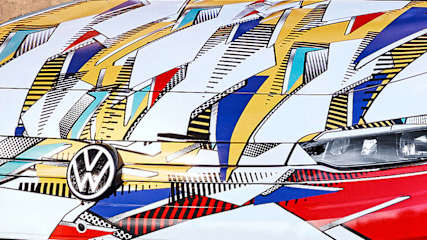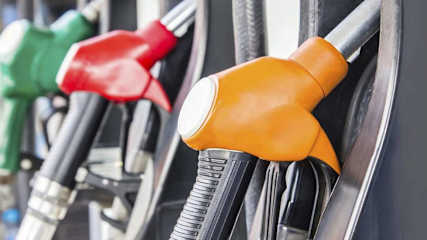Audi News
.jpg)
Safety ratings due to expire on these cars
Read the article
By Tim Gibson · 29 Dec 2025
Some of Australia's favourite models will see their safety ratings lapse in 2026.

Why electric cars are the answer | Opinion
Read the article
By Dom Tripolone · 26 Dec 2025
Why EVs are a smarter option than they get credit for

How this brand is toppling Tesla in Europe
Read the article
By Tim Gibson · 17 Dec 2025
Volkswagen Group has become the top-selling EV brand in Europe, overtaking Tesla, through the first 10 months of 2025, according to an article in AutoNews.

Huge EV tax break could get axed
Read the article
By Tim Gibson · 16 Dec 2025
The federal government has announced there will be a statutory review into the Electric Car Discount.

Europe to ditch petrol, diesel ban: report
Read the article
By Tim Gibson · 15 Dec 2025
A landmark car ban in Europe could be overturned, according to reports.

Another forbidden Audi detailed!
Read the article
By Tom White · 08 Dec 2025
Audi has revealed its next electric SUV, dubbed the E7X, but it’s not Audi as we know it.Instead, the E7X comes from the German luxury brand’s tie-up with MG owner SAIC in China.Styled AUDI, models from this joint venture dump the four-ring logo in favour of typeface only. The E7X is its second model after the E5 Sportback which hit the Chinese market earlier in 2025.What sets the AUDI models apart from their four-ringed counterparts is their use of SAIC platforms. For example the E5 and E7X share their underpinnings with models from the Chinese brand’s IM arm, which are sold in Australia badged as MGs.At over five-meters long, the E7X is even larger than the German brand’s Q8 e-tron, and it features an over-three-meter long wheelbase, suggesting generous interior dimensions. Two versions have been announced, a rear-wheel drive version which produces 300kW/500Nm and an all-wheel drive version which adds a 200kW motor on the front axle, and produces a total torque of 800Nm. Its battery capacity and driving range are yet to be revealed.Like other Chinese domestic market models, the E7X features a detailed LED light feature in the front, an illuminated logo, and similar light detailing for its rear lights. It offers enormous wheels in either 21- or 22-inch sizes, as well as trendy flush doorhandles, and a LiDAR pod on its roof. Interior images are yet to be revealed, although the car will likely follow in the footsteps of the E5 before it and look unrecognisable from Audi’s international range.The E5, for example, features a dash-spanning array of screens with Chinese-market specific software, a minimalist centre console and stripped-back steering wheel design. Like the E5, the E7X also features the option to have camera-based wing mirrors, which expand on the already massive screen real-estate on the interior.The Audi E7X is set to be fully revealed at the Beijing Motor Show in April and will go on sale in China shortly afterward.Audi’s SAIC joint-venture is regarded as a success in China, with the E5 amassing over 10,000 pre-orders as soon as it went on sale.While the E5 may remain a Chinese domestic market option, the E7X nameplate has been registered in Europe, suggesting Audi is considering overseas markets for the JV models.This comes with the backdrop of Audi’s Volkswagen parent company lobbying the European Union to relax tariff structures so it can bring Chinese-built models to Europe.The EU introduced tariffs in 2024 in order to protect domestic automakers from a torrent of lower-cost Chinese vehicles which it claimed at the time were unfairly subsidised by the Chinese government.According to industry source, Automotive News, VW Group is hoping the EU will grant it an exemption from what is currently a 20.7 per cent tariff.Volkswagen, which has been active in joint ventures in China for longer than most global car companies, gambled on new global models in China prior to the EU’s tariffs being introduced.For example, the Cupra Tavascan (which is built in a joint-venture with JAC and rides on the same MEB platform as the ID.4) is built in Anhui province with the original plan to sell it in Europe and abroad.If VW Group can secure an exemption to these rules, it opens up the opportunity for it to export more Chinese-built models, like the E7X and the upcoming large three-row Volkswagen based on the ID. Era concept which was revealed earlier in 2025.

Audi's double-life exposed
Read the article
By Laura Berry · 24 Nov 2025
Audi’s China-only brand AUDI has just debuted its next vehicle in concept form — the E SUV.Audi is living a double life releasing cars you’ve never seen nor heard of in China under its AUDI brand. Yes, all uppercased and without any sign of the familiar four rings. It’s been a massive success, so far. When AUDI launched the E5 Sportback in September, the company received 10,153 orders within the first 30 minutes of the books opening. Impressive even by Chinese standards.Now AUDI is offering a taste of its follow up act for China with the E SUV Concept, which was unveiled at the Guangzhou Auto Show over the weekend.The E SUV Concept is an SUV version of the E5 Sportback, which is expected to be formally named the AUDI E8 SUV when it goes into production.The E SUV Concept shares similar styling to the E5, with its signature giant LED trapezoidal lighting from and rear, but brings its own flavour with an SUV coupe design.Industry publication Car News China reports that the E8 will also use the same Advanced Digitised Platform (ADP) as the E5 and also use tech from Audi’s joint venture partner SAIC’s IM Motors brand.Car News China predicts the top grade E8 will be equipped with 800V architecture, along with a 109kWh battery with a range of up to 700km (CLTC).Single-motor rear and dual motor all-wheel drive variants will be available with the latter producing a combined 500kW with an estimated 0-100km/h sprint coming in under five seconds.We don't know what the cabin of the concept looks like, it makes sense to assume the interior is much like the E5 Sportback with an expansive curved screen that traverses the dash of a minimalist but luxurious looking cabin.The Chinese launch of the E8 is expected in early 2026. As for when it comes to Australia, unfortunately that's very unlikely to happen. The closest Australians can get to driving and Audi E8 or E5 is through one of IM Motors products currently being sold in Australia. IM has arrived in Australia as a luxury sub brand of MG. The current line-up includes the IM5 sedan and IM6 SUV. The top-of-the-range IM6 Performance comes in at $80,990 and comes standard with a 100kWh battery with up to 505km of range, dual motors for all-wheel drive making 572kW and 702Nm, and 800V architecture.
.jpg)
What you must know before buying a used car
Read the article
By Tim Gibson · 20 Nov 2025
A new safety report has rated some popular used cars.Monash University’s Accident Research Centre Used Car Safety Ratings for 2025 have been revealed, with 23 new vehicles added to the handbook that covers vehicles built between 1982 and 2023.Top picks of the newly added vehicles were the 2013-22 Ford Transit van, 2014-21 BMW 2 Series, 2019-23 Mazda CX-30, 2017-23 Mitsubishi Eclipse Cross and 2018-23 Subaru Forester.The report revealed the average risk of being killed or seriously injured across all road users involved in a crash is 34 per cent lower in a vehicle manufactured from 2022 onwards, compared to 20 years ago. The ratings report looked at crash data analysing more than 9.5 million vehicles and 2.6 million road users in Australia and New Zealand between 1987 and 2022. It rated 561 vehicle models that were built between 1982 and 2023 looking at factors such as crash location, driver age and the number of vehicles involved. It measured safety through an overall rating with three categories: driver safety, other road user safety and crash avoidance. All are ranked out of five.Certain vehicles received a ‘Safer Pick’, where they scored five stars for overall and driver protection, with at least four stars for other road user safety and crash avoidance. Almost all 'Safer Pick' vehicles are available second-hand for under $25,000 and more than half priced below $10,000, according to Monash University.The report made particular note of the high risk attached to ute crashes, with only one ute achieving a five-star overall rating, and 70 per cent one or two stars.Some of this real-world data does not line up with ANCAP safety ratings. The Ford Mustang, manufactured from 2015-2022, received a two-star rating, which was later upgraded to three-stars with ANCAP. Yet, it achieved a near all-excellent rating in real-world crashes, according to the data.The full data set is available here.

Audi working on tough 4WD: Report
Read the article
By Laura Berry · 18 Nov 2025
Audi wants a hardcore off-road SUV to rival Land Rover’s Defender and it plans to do it with the help of the Volkswagen Group’s retro-revival sub-brand Scout.

Price shock for luxe hybrid SUV
Read the article
By Jack Quick · 11 Nov 2025
Audi has announced it’s bringing the plug-in hybrid (PHEV) version of its Q5 mid-size SUV back to Australia in new-generation guise.





